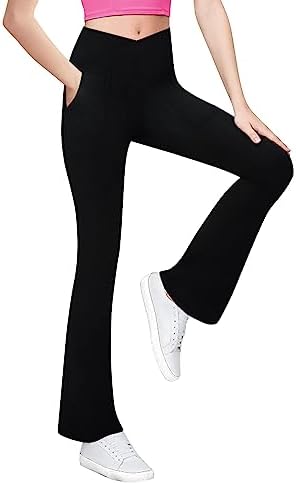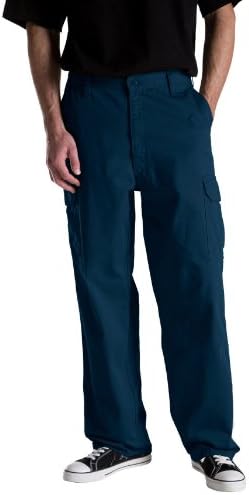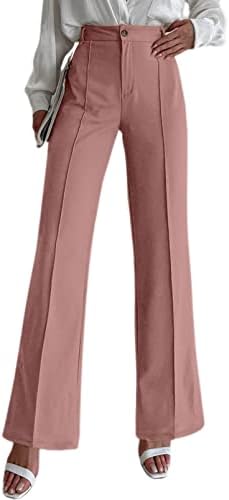Discover the Timeless Elegance of Hakama Pants: A Perfect Blend of Tradition and Style!

Hakama Pants are traditional Japanese trousers that are typically worn by men for formal occasions such as martial arts practices, tea ceremonies, and weddings. These wide-legged pants are made from high-quality fabrics, such as silk or cotton, and feature pleats that give them a flowing and elegant appearance. The Hakama Pants are secured at the waist with a tie, and they have a unique design that allows for easy movement and comfort. These pants are not only functional but also hold deep cultural significance in Japan, representing tradition, honor, and respect. With their timeless style and craftsmanship, Hakama Pants are a symbol of Japanese heritage and are still worn by many today, preserving the country’s rich history and traditions.
Click to buy the best selling Hakama Pants
How To Style Hakama Pants?
Hakama pants are traditional Japanese trousers that are often worn by men and women for formal occasions or martial arts training. These pants have a unique style and can be a fun addition to any outfit. To style Hakama pants, you can start by pairing them with a fitted top to balance out the loose fit of the pants. You can also add a belt to cinch in the waist and create a more defined silhouette. For a more casual look, you can wear them with a t-shirt and sneakers. To dress them up, opt for a button-down shirt and dress shoes. Overall, Hakama pants are versatile and can be styled in many different ways to create a unique and fashionable look.
COOFANDY Men’s Hippie Harem Pants: Stylish and Comfortable Trousers
This product is a pair of men’s baggy harem pants from the brand COOFANDY. It is perfect for daily life, casual wear, yoga and meditation, home and lounge, beach and street, cosplay, and more. The pants are made of soft cotton and linen fabric, which is comfortable and lightweight. They are skin-friendly and breathable, making them ideal for summer and fall. The pants have a harem design with a loose fit and wide legs. They also have two slant side pockets for convenient storage. The elastic waist with an adjustable drawstring provides maximum comfort, and the crotch design allows for ease of movement. The package dimensions are 14.45 x 10.2 x 1.81 inches, and the pants weigh 3.53 ounces. The department is mens, and the ASIN is B08Z742X62. The pants are imported and can be machine washed.
BUY NOW – COOFANDY Men Hippie Harem Pants Baggy Linen Boho Yoga Casual Drop Crotch Trouser
What Are Hakama Pants?
Hakama pants are a traditional Japanese garment that is both stylish and functional. These wide-legged pants are typically worn by both men and women, and they are often seen in martial arts practices and formal occasions.
One interesting aspect of hakama pants is their history. They were originally worn by samurais during the feudal era as a form of protective clothing. The wide legs allowed the samurais to move freely while the pleats provided extra reinforcement. Over time, hakama pants became a symbol of status and were worn by high-ranking officials.
In modern times, hakama pants have become a fashion statement. They are often seen in traditional Japanese weddings, tea ceremonies, and even in cosplay events. Many people also wear hakama pants during Aikido or Kendo practices, as they provide a sense of tradition and authenticity.
Not only are hakama pants visually stunning, but they are also comfortable to wear. The loose fit allows for easy movement, and the fabric used is typically lightweight and breathable. These pants are often paired with a kimono or a traditional top, creating a unique and elegant look.
In conclusion, hakama pants are not just a piece of clothing; they represent a rich cultural heritage. They combine tradition, style, and functionality, making them a fascinating and versatile garment. Whether you are attending a formal event or simply want to add a touch of Japanese culture to your wardrobe, hakama pants are a fantastic choice.
How To Wear Hakama Pants?
Hakama pants are traditional Japanese trousers that are worn by both men and women. They are typically made from a flowing fabric and have a wide, pleated design. To wear them, start by putting on a koshiita, which is a stiff board that provides support to the back. Then, wrap the pants around your waist, making sure the front panel is centered. Finally, tie the himo (cloth belt) in a knot and adjust the length of the pants by folding the excess fabric under the belt. Hakama pants are commonly worn for martial arts, tea ceremonies, and other formal occasions. They are not only comfortable but also add a touch of elegance to any outfit.
What To Wear With Hakama Pants?
Hakama pants are traditional Japanese trousers that are wide-legged and high-waisted. They are often worn for formal occasions or martial arts practices. To style these unique pants, you can pair them with a fitted top and a belt to accentuate the waist. Complete the look with sandals or heels for a touch of elegance. Comfort is key when wearing Hakama pants, as they allow for easy movement and are made from breathable fabrics.
Where Can I Buy Hakama Pants?
You can buy Hakama pants from various online retailers or specialty Japanese clothing stores. These wide-legged trousers are traditionally worn in martial arts or as part of a traditional Japanese outfit. They are typically made of a durable fabric and come in different colors and styles. Whether you’re a martial arts enthusiast or simply appreciate the unique style, adding a pair of Hakama pants to your wardrobe can be a fun and fashionable choice.
Review the Most Popular Hakama Pants Products
What Stores Sell Hakama Pants?
Hakama pants are traditional Japanese garments that are widely used for martial arts and formal occasions. They can be found in stores specializing in martial arts supplies, such as martial arts supply stores or online retailers. Some popular options include Amazon, KarateMart, and Budovideos. These pants are typically made of durable and lightweight materials, making them comfortable for movement and training.
Frequently Asked Questions About Hakama Pants?
1. What are Hakama Pants and where do they originate from?
Hakama Pants are traditional Japanese trousers that have been around for centuries. They originated from the samurai warriors of feudal Japan, who wore them as part of their official attire. These wide-legged pants were not only fashionable but also practical, allowing freedom of movement during combat.
2. How do you wear Hakama Pants?
To wear Hakama Pants, you first need to put on a kimono or a similar traditional Japanese garment. Then, wrap the Hakama around your waist, securing it with a belt. The front pleats of the Hakama should be arranged neatly, and the back should hang down like a skirt. It might take some practice, but once you get the hang of it, you’ll rock those Hakama Pants like a true samurai!
3. Can anyone wear Hakama Pants?
Absolutely! Hakama Pants are not limited to samurai warriors or men only. In modern times, both men and women can wear Hakama as a fashionable statement or during traditional ceremonies like weddings or tea ceremonies. They are a symbol of elegance and grace, and anyone can embrace their samurai spirit while rocking these stylish trousers.
4. Are Hakama Pants comfortable?
Oh, yes! Hakama Pants are not only stylish but also incredibly comfortable. The loose fit allows for ease of movement, making them perfect for activities like martial arts or simply strolling around town. The flowing fabric adds a touch of elegance, while the wide legs provide ventilation, keeping you cool and comfortable even on hot summer days.
5. Can I wear Hakama Pants casually?
Absolutely! Hakama Pants have evolved from being strictly formal attire to a versatile fashion statement. Nowadays, you can find modern versions of Hakama Pants that can be worn casually with a t-shirt or a blouse. Pair them with some stylish sandals or sneakers, and you’re ready to rock a unique, trendy look that will turn heads on the streets.
6. Are there different types of Hakama Pants?
Yes, indeed! There are various types of Hakama Pants, each with its own unique style. The most common types include Andon Hakama, which have divided legs and are often worn by women, and Umanori Hakama, which have a horse-riding style and are popular among men. There are also Hita Hakama, Montsuki Hakama, and many more, each with their own distinct characteristics.
7. Can I wash Hakama Pants in a washing machine?
While it’s always best to check the care instructions that come with your Hakama Pants, most traditional ones are made from delicate fabrics and should be hand-washed to ensure they maintain their shape and color. Treat them with care, and they’ll last for a long time, preserving their beauty and elegance.
8. Can I wear Hakama Pants for special occasions?
Absolutely! Hakama Pants are perfect for special occasions. If you want to make a statement at a wedding, a graduation ceremony, or a traditional event, Hakama Pants will definitely turn heads and make you stand out from the crowd. Embrace the spirit of the samurai and let your inner warrior shine!
9. Are Hakama Pants suitable for both formal and informal occasions?
Indeed! Hakama Pants can be dressed up or down, making them suitable for a wide range of occasions. Pair them with a dress shirt and a blazer, and you’ll be ready to rock a formal event. On the other hand, combine them with a simple t-shirt and some casual shoes, and you’ll have a comfortable and stylish outfit for everyday wear.
10. Can I find Hakama Pants outside of Japan?
Yes, you can! Hakama Pants have gained popularity worldwide, and you can find them in various stores and online shops that specialize in traditional or Asian-inspired clothing. Embrace the samurai spirit no matter where you are, and let Hakama Pants transport you to the land of the rising sun, even if you’re halfway across the world.







